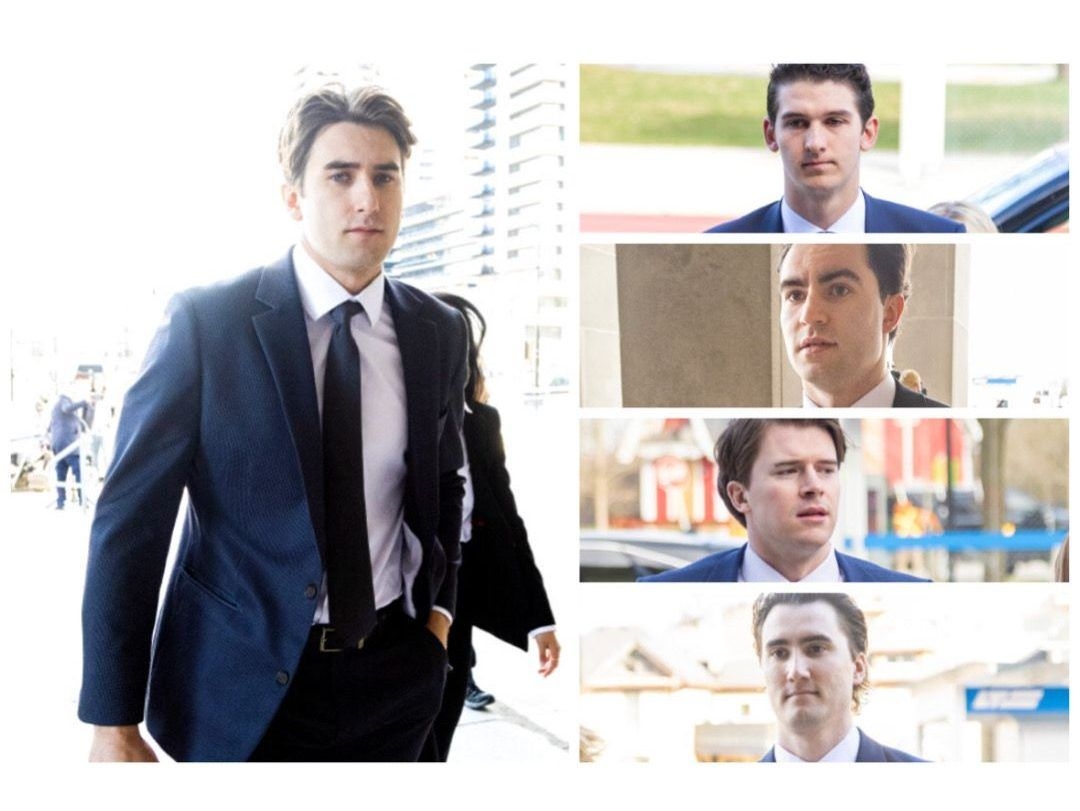The sexual assault trial involving five former Team Canada junior hockey players—Dylan Dubet, Cal Foote, Alex Formenton, Carter Hart, and Michael McLeod—began recently amid widespread public and media attention. The charges relate to an incident from June 2018 involving a 20-year-old woman. After initially being closed without charges, the case was reopened following revelations that Hockey Canada used funds from minor hockey registrations to settle related claims. All five defendants have pleaded not guilty, and the trial, which includes a 14-person jury, is expected to extend into June due to its complexity. The proceedings hold significant implications for Hockey Canada and the broader hockey community.
The trial marks a pivotal moment for accountability in Canadian hockey, addressing allegations that have stirred considerable controversy and scrutiny toward Hockey Canada. The incident in question reportedly occurred in June 2018, and it was first investigated but did not result in charges at that time. Interest in the case was reignited when reports surfaced revealing that Hockey Canada had allegedly used funds collected from minor hockey players’ registration fees to financially settle claims related to sexual misconduct. This disclosure has raised serious ethical and legal questions regarding the organization’s governance and transparency.
Details of the Allegations and Charges
The five accused—Dylan Dubet, Cal Foote, Alex Formenton, Carter Hart, and Michael McLeod—are all former junior hockey players who represented Team Canada. They face multiple charges stemming from an alleged sexual assault against a 20-year-old woman. Each defendant has entered a plea of not guilty, and their legal teams have emphasized the presumption of innocence as the trial proceeds. The prosecution aims to present evidence that details the events and the alleged misconduct that led to the charges.
Impact on Hockey Canada and Community Response
This case has brought intense focus on Hockey Canada’s internal handling of sexual assault allegations and its broader approach to player conduct and safety. The use of minor hockey registration funds for settlements has sparked public backlash, prompting calls for policy reforms and more rigorous oversight within the organization. Stakeholders within the hockey community—including players, coaches, and officials—have expressed concern about the potential repercussions for the sport’s culture and image. Many emphasize the importance of transparency and justice in restoring trust.
Trial Proceedings and Expectations
The trial is being conducted before a 14-person jury and is expected to last several months due to its legal and factual complexity. Both prosecution and defense teams are preparing extensive presentations, with witness testimonies and documentary evidence integral to the case. Legal experts highlight that the outcome could set precedents for how cases involving athlete misconduct are managed and adjudicated in Canada. Due to the sensitive nature of the allegations, court protocols ensure protections for all parties involved during the proceedings.
Broader Implications
- The case underscores challenges in addressing sexual misconduct allegations within sports organizations.
- It has prompted national dialogue on safeguarding athletes and improving governance in amateur and professional hockey.
- Legal outcomes may influence policy changes within Hockey Canada and possibly other sporting bodies across the country.
- The trial serves as a reflection of societal demands for accountability and the proper handling of violence against women.
As the trial continues, developments will be closely monitored by media and the public alike. Updates will be provided as new information emerges, ensuring transparency throughout this significant legal process.
The trial involving the five former Team Canada junior hockey players represents a critical juncture for accountability and transparency within Canadian hockey. As the legal process unfolds, it highlights the broader issues of how sports organizations handle allegations of sexual misconduct and the ethical responsibilities they bear toward their players and communities. The case has already sparked widespread discussion and may lead to significant reforms in governance and athlete protection policies. With the trial expected to continue for several months, its outcome could have lasting effects on Hockey Canada and the wider sporting landscape in Canada, emphasizing the ongoing societal commitment to justice and safeguarding against sexual violence.

